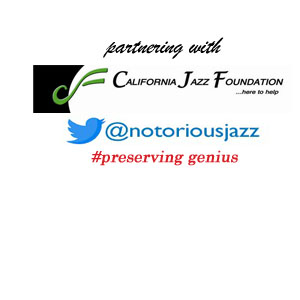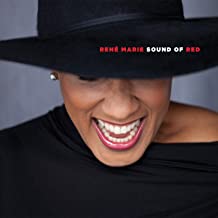
The Quarantined Jazz Voyager
Kicking back in my quarantined room I have a hankering to listen to one of my favorite voices of our time in recent years. My indulgences are taking me to pull down from the stacks Sound Of Red by René Marie for this week’s listening session. The album is filled with personal insights and wisdom that cross the emotional borders of human consciousness, allowing us to investigate our own frailties and rejoices.
Recorded in 2016 and produced by Marie and Quentin Baxter, and released on the Motéma Music label. This is her first album of entirely self-penned, provocative originals, that has garnered her a Best Jazz Vocal Album Grammy nomination. Drawing from jazz, folk, R&B, and country, proves to be a compelling exploration in sound.
The album is produced by René Marie and Quentin Baxter who also plays drums on the album. Sound of Red contains all original songs by René Marie.
Track Listing | 64:34 1. Sound Of Red ~ 6:00 2. If You Were Mine ~ 6:33 3. Go Home ~ 5:46 4. Lost ~ 10:36 5. Stronger Than You ~ 4:36 6. Certaldo ~ 7:04 7. Colorado River Spring ~ 3:21 8. This Is Not A Protest Song ~ 5:41 9. Many Years Ago ~ 4:50 10. Joy Of Jazz ~ 4:12 11. Blessings ~ 5:55 Personnel
- René Marie ~ Vocal, Producer
- John Chin ~ Piano
- Elias Bailey ~ Bass
- Quentin E. Baxter ~ Drums, Producer
- Sherman Irby ~ Alto Saxophone (tracks: 1)
- Romero Lubambo ~ Guitar (tracks: 6)
- Etienne Charles ~ Trumpet (tracks: 2, 10)
- Shayna Steele ~ Backing Vocals (tracks: 8, 11)
As you listen I hope you enjoy this great addition to the jazz catalog. Continue your vigilance of social distancing, wear your masks, and stay healthy. During this sabbatical from flying and investigating jazz around the globe, this Quarantined Jazz Voyager will enjoy it with you and know that the music, world and I have not gone anywhere.
More Posts: adventure,club,genius,jazz,museum,music,preserving,restaurant,travel,vocal,voyager
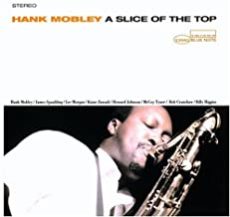
Daily Dose Of Jazz…
Kiane Zawadi was born Bernard Atwell McKinney on November 26, 1932 in Detroit, Michigan into a family of ten children, several of whom also became musicians. A trombone and euphonium player, he first worked with Barry Harris and Sonny Stitt in 1951, and then played with Alvin Jackson’s band early in the decade. Toward the middle of the decade, he joined Art Blakey, and by 1959 he moved with Yusef Lateef to New York City.
The 1960s had him playing with Illinois Jacquet, James Moody, and Curtis Fuller. It was later in the Sixties that Bernard adopted the name Kiane Zawadi. By the 1970s he was performing with Archie Shepp, Carlos Garnett, Harold Vick, Frank Foster, Charles Tolliver, Abdullah Ibrahim, and McCoy Tyner.
In 1978, he played in the pit orchestra for Dancin’, a Broadway show. He also appeared at a Charlie Parker tribute at Town Hall in New York City in 1985. Other musicians Zawadi worked with include Mongo Santamaría, Dizzy Gillespie, Clark Terry, Joe Henderson, and Aretha Franklin.
As a sideman, he has recorded thirty-eight albums with Foster, Slide Hampton, Freddie Hubbard, Clifford Jordan, Yusef Lateef, Donald Byrd, Pepper Adams, James Moody, Sun Ra, Hank Mobley, Howard McGhee, Freddie Roach, Archie Shepp, Willis “Gator” Jackson, Dollar Brand, McCoy Tyner, Les McCann, Shirley Scott, Jackie DeShannon, Harold Vick, Charles Tolliver, Carlos Garnett, Kenny Vance, Ralph MacDonald, Phyllis Hyman, Cornell Dupree, Grant Green, Mickey Bass, Illinois Jacquet, Rodney Kendrick, Joe Henderson, and Patience Higgins.
Trombonist and euphonium player Kiane Zawadi, one of the few jazz soloists on the latter instrument, at 87 he continues to perform and record.
More Posts: euphonium,history,instrumental,jazz,music,trombone
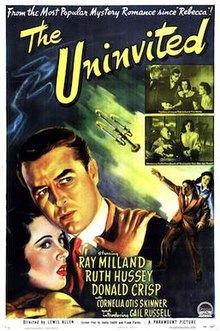
Hollywood On 52nd Street
Stella by Starlight is a popular song by Victor Young that was drawn from thematic material composed for the main title and soundtrack of the 1944 Paramount Pictures film, The Uninvited. Appearing in the film’s underscore as well as in source music as an instrumental theme song without lyrics.
It was turned over to Ned Washington, who wrote the lyrics for it two years later in 1946. The title had to be incorporated into the lyrics, which resulted in its unusual placement: the phrase appears about three-quarters of the way through the song, rather than at the beginning or the end.
At one point in the film, the main character, Rick (Ray Milland) tells Stella (Gail Russell) that he is playing a serenade, To Stella by Starlight.
Plot
Rick (Ray Milland) and his sister Pamela (Ruth Hussey) unknowingly buy a seaside home that is haunted by the ghost of Mary Meredith. Meredith’s husband was a painter who had an affair with his gypsy model, Carmel, Meredith discovers the affair, takes Carmel to and leaves her in Paris, where she gives birth to a child, which ultimately Mary took. Subsequently, Carmel returned to England, takes the infant Stella from Windward, and, during the confrontation, pushes Mary off the cliff to her death. So Mary haunts the house and when Stella returns her affinity to the place is cemented. Rick falls for her but wants her to leave. Seances, ghost visitations by both Camel and Mary, and a sanatorium reveal that Carmel, not Mary is Stella’s mother. This frees Carmel’s spirit from Windward House and with Rick confronting Mary’s spirit announcing he is no longer afraid, the spirit also departs.
Recordings
“Stella by Starlight” is one of the most popular standards, its May 1947 recording by Harry James and his orchestra reached 21st place in the pop charts. Two months later, the recording by Frank Sinatra with Axel Stordahl and his orchestra also rose to the 21st position.
Early adaptations of the song were performed and recorded by Charlie Parker, Stan Getz in December 1952, trumpeter Chet Baker, Bud Powell, Stan Kenton, Nat King Cole. Other recordings have been made by Miles Davis, Red Garland, Earl Grant, Joe Pass, Bill Evans, Art Blakey and the Jazz Messengers, Lou Donaldson, Charlie Rouse, Dexter Gordon, Billy Eckstine, Dick Haymes, Ray Charles, Anita O’Day, Helen Reddy, Tony Bennett, Ella Fitzgerald, Mina, Al Hirt, Larry Coryell, among others.
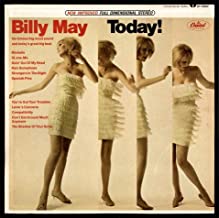
Daily Dose Of Jazz…
William McLeish Smith was born on November 25, 1910 in Charleston, South Carolina, and raised in Cleveland, Ohio. His first instrument was the clarinet and his education was in chemistry, receiving his degree from Fisk University, an HBCU.
In 1929 Smith became an alto saxophonist for Jimmie Lunceford’s band, becoming one of the main stars in the group. 1940 had him leading his own quintet as a side project. His success with Lunceford had lost its charms by 1942 as he now wanted more pay and less travel. Moving to the Charlie Spivak Orchestra for a year and was in the navy for another year. He then switched to Harry James’s orchestra, where he made more money and stayed with him for seven years.
His next move was to work with Duke Ellington and Billy May. He was also part of the Gene Krupa Trio and can be heard on the 1952 live Verve album The Drum Battle, part of the Jazz at the Philharmonic series. In 1954 he returned to Harry James’s band.
He recorded some three dozen albums as a sideman with Stan Getz, Dizzy Gillespie, Lionel Hampton, Billie Holiday, Barney Kessel, Jimmie Lunceford, Billy May, Rose Murphy, Red Norvo, Andre Previn, Googie René, and Kay Starr among others.
Alto saxophonist Willie Smith, who has been described as one of the triumvirates of great jazz alto saxophonists with Johnny Hodges and Benny Carter before Charlie Parker arrived, passed away of cancer on March 7, 1967 in Los Angeles, California, at the age of 56.
More Posts: history,instrumental,jazz,music,saxophone
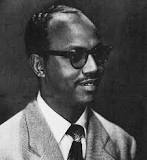
Three Wishes
Nica inquired of Adriano Acea what his three wishes would be and he told her:
- “I would like to play music as it should be played.”
- “I’d love to have money to make my family happy. I thinkI could enjoylife from there.”
*Excerpt from Three Wishes: An Intimate Look at Jazz Greats ~ Compiled and Photographed by Pannonica de Koenigswarter
More Posts: baroness,history,instrumental,jazz,music,pannonica,piano,three,wishes


